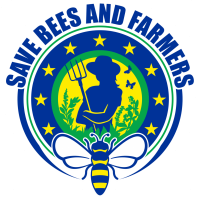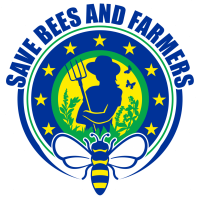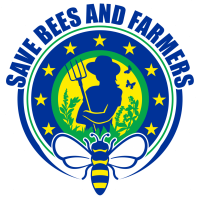Press releases
Vice-President Jourová and Commissioner Kyriakides receive Bees ECI demands
November 25th – Commissionaires Jourová and Kyriakides receive Bees ECI demands
Today, sufficient EU Member States blocked the Commission's proposal in the Appeal Committee to extend the expiring authorisation of glyphosate for an extra year. Pesticide Action Network Europe welcomes the well-justified decision since there is enough scientific evidence regarding the unacceptable risk of glyphosate use to human health and the environment.
The European Commission has just published a proposal for a Commission implementing regulation on co-formulants[1]. PAN Europe considers that the current proposal is not in line with EU law, and will not enable a proper protection of citizens and the environment against these - yet non-regulated - chemicals. The Commission is trying to transfer the burden of assessing their toxicity onto the shoulders of Member States, while not ensuring they receive sufficient information from the industry to carry out the work.
Results of the Pesticide-CheckUp, a citizens’ science action initiated by the civil society alliance Good Food Good Farming with the support of 10 national partner organisations, reveal that harmful pesticides frequently used in agriculture and public spaces can be detected in the hair of every third person.
While tension is rising amongst EU Member States on new pesticide reduction targets, the new ‘Pesticide Atlas 2022’ [1] released today by the Heinrich-Böll-Stiftung, Friends of the Earth Europe and PAN Europe shows that the amount of pesticides used worldwide has increased by 80 percent since 1990, causing harm to the health of farmers, consumers and nature alike.
On 13th or 14 of October, EU Member States will discuss to extend the authorization of glyphosate for an extra year during this week SCoPAFF meeting[1]. PAN Europe is outraged. There is more than enough new scientific evidence to expose the unacceptable risk of current glyphosate use to human health and to the environment, This should be enough for EFSA and the responsible Member State Authorities to ban glyphosate right away.
The European Citizens Initiative (ECI) Save Bees and Farmers has passed the 1 million valid signatures milestone. The certificates of 27 EU member states have been accepted and the European Commission has declared the ECI successful. This success marks a very clear and loud wish by EU citizens to strongly reduce pesticide use. The initiative’s 1,1 million citizens demand a phase out of synthetic pesticides and a restoration of nature in agricultural areas.
Pesticides are detected in playgrounds and schoolyards, despite measures taken by local authorities in the Italian province of Bolzano-South Tyrol. A new study reveals that the pesticide reduction measures proposed by the EU Commission are too weak. The results show that it is important to impose more stringent buffer zones.
On the 60th anniversary of Rachel Carson’s Silent Spring, the book that helped trigger the modern environmental movement, pesticide contamination is higher than ever. This is also due to a failure of EU pesticide policies. A new PAN Europe report reveals a 100% failure rate of an EU law to ban the most harmful pesticides because officials follow rules created by industry.



